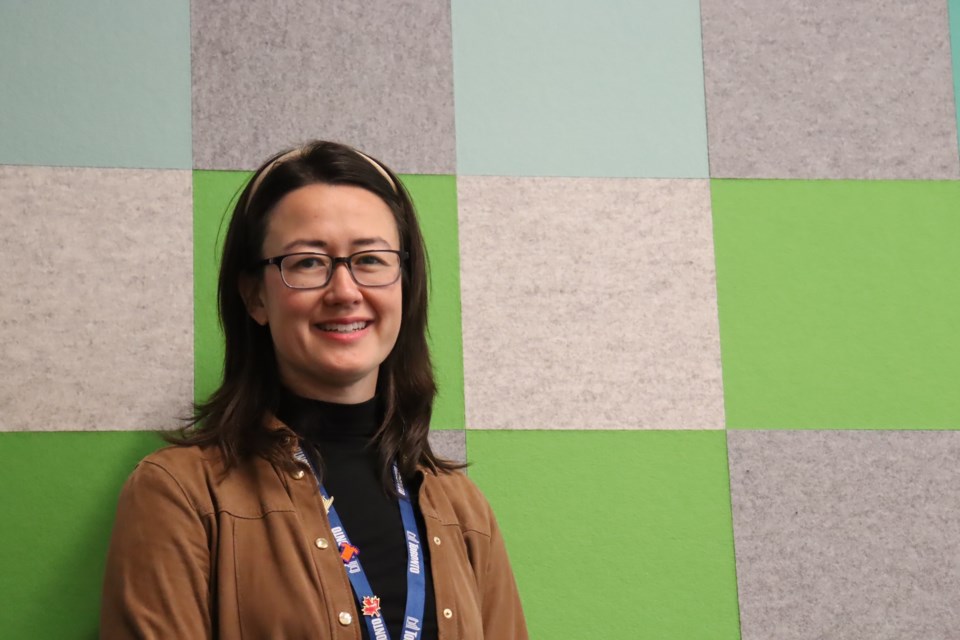Toronto’s new medical officer of health, Dr. Michelle Murti, brings an engineer’s precision and a doctor’s compassion to a city still recovering from the shocks of a global pandemic. Known for her data-driven approach and community focus, Dr. Murti says her mission is clear — to rebuild Toronto’s public health system “from the foundation,” restoring both resilience and trust.
A biomedical engineer turned physician, Murti views her new role through a builder’s lens. “Engineers are kind of like beavers,” she joked, recalling her childhood fascination with the animal’s knack for problem-solving and reconstruction. “We’re both involved in building and reshaping the world around us.”
Murti succeeds Dr. Eileen de Villa, who guided Toronto Public Health (TPH) through the COVID-19 pandemic. As the head of Canada’s largest local health agency, Murti now serves a city of over three million people — a population grappling with ongoing public health challenges from poverty and drug use to declining vaccination trust.
Building Resilience and Trust
Murti’s focus is twofold: strengthening Toronto’s public health foundations and rebuilding the public’s confidence in the system. “Yes, we’re out of COVID, but who knows what the next thing is?” she said. “If our population isn’t healthy to start with, we won’t do as well in any future crisis.”
Her strategy involves addressing the social determinants of health — issues like food insecurity, housing instability, and access to medication. “We see what happens when someone can’t afford healthy food or medication,” she explained. “It affects not just individuals, but our collective resilience.”
But restoring trust is her most urgent challenge. Murti acknowledges a noticeable erosion of confidence in public health institutions — a ripple effect from pandemic-era divisions. “We’re seeing parents refuse free school dental programs and avoid vaccination reporting, not out of opposition to vaccines, but because they don’t want to share data with government,” she said.
TPH, she noted, provides far more than immunizations — from free dental clinics and home visits for new mothers to restaurant inspections, pool safety checks, and infection control at salons and tattoo parlours. With staff fluent in 43 languages, TPH’s diversity reflects the community it serves. “Our first goal,” Murti emphasized, “is to remind residents of all the ways we’re here for them.”
Addressing the Drug Crisis
Murti is also navigating the fallout from the closure of several safe consumption sites across Toronto and the province’s shift to Homeless and Addiction Recovery Treatment (HART) hubs. While the new model aims to integrate detox and housing services, implementation has lagged.
“We’re still in a transition phase,” she said, noting that Toronto’s HART hub operates temporarily at The Esplanade and won’t be fully functional until 2027. The closures have increased pressure on churches and community centres offering harm reduction services, though official overdose data has not shown a corresponding rise in fatalities.
Murti believes the changing nature of drug use — including a shift from injection to inhalation — may explain the data gap. “There’s a lot we’re still learning,” she admitted. “The drug supply is evolving, and so must we.”
A Builder’s Vision for Public Health
For Dr. Murti, public health is both an art and a science — one that demands continuous learning and adaptation. “We have to test, learn, and rebuild — that’s what drew me to engineering in the first place,” she said.
Rebuilding trust, she admits, requires more than technical fixes. “It’s about re-establishing our connection with communities and proving that we’re here to serve them.”
With that mindset, Toronto’s new top doctor is already laying the groundwork — not just for a stronger public health system, but for a city ready to face whatever comes next.


